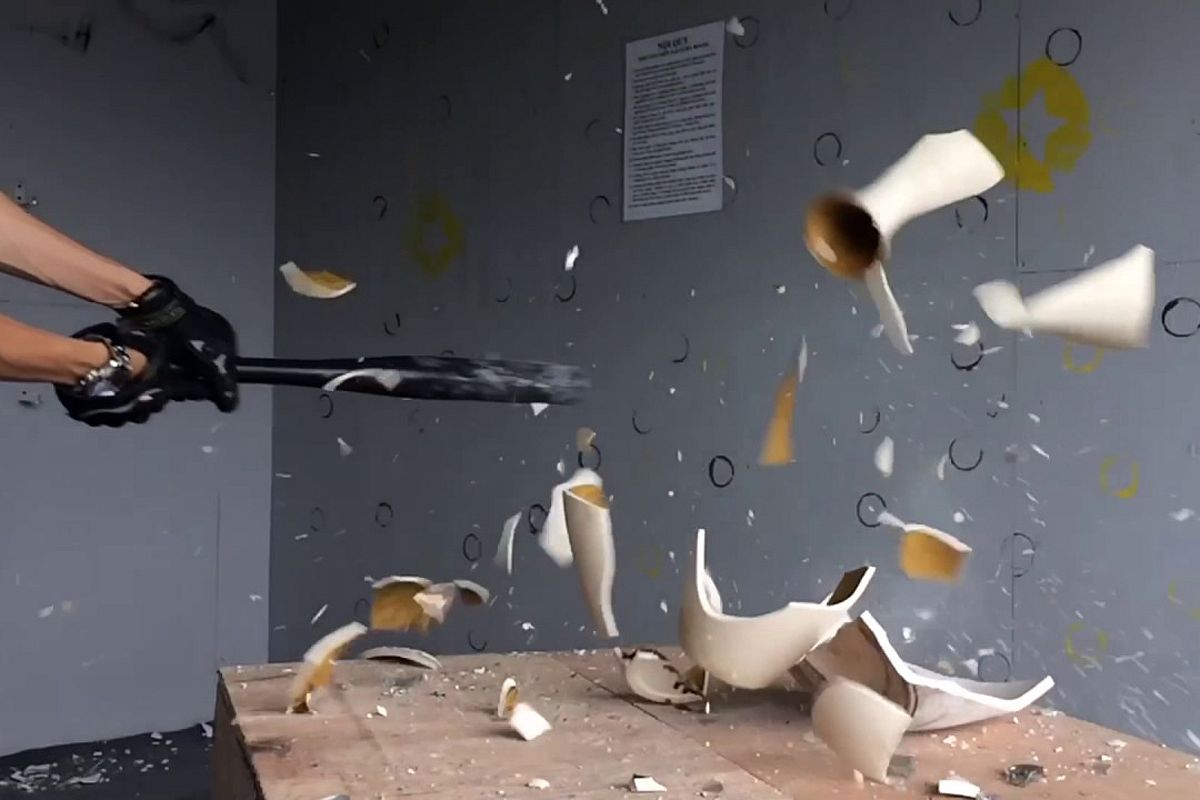Danis Nguyen remembers the first time he saw a tattoo. It was on TV, in a world far away from his childhood home in Nha Trang: a world of rebellion, electric guitars and round sunglasses. At 18, Nguyen watched music videos by the American rock band Guns N’ Roses with fervor.
Seven years later, he would relocate to Saigon with little more than a few months’ rent and a passion for tattooing. Once he got settled, Nguyen opened a small home studio and later set off to Thailand to further his art. At that time, leaving Vietnam to study was the only option for aspiring tattoo artists, as the country lacked its own professional shops. But that didn’t stop Nguyen from choosing Saigon as the location to set up his shop, Saigon Ink, in 2004. It was a bold move, considering his was the first in the city.
In Vietnam, tattoos have long had a reputation as the tell-tale stamp of gangsters and prisoners. This widespread belief was especially strong among the authorities and older generations for a long time, keeping the art form underground and its popularity at bay. However, the past decade has seen an awakening of the tattoo industry, particularly in major cities like Saigon and Hanoi. A pioneer of Vietnam’s tattoo industry, Nguyen remembers a time before Saigon had embraced tattoos as an art form.
“It [was] really, really difficult,” Nguyen tells Saigoneer, reflecting on the hurdles he faced, like relentless questioning from officials, when he first opened Saigon Ink 13 years ago. “We try to change that a lot.”
Now 38, Nguyen has seen a lot of change first-hand – he’s watched the city’s tattoo culture grow from a single studio to his estimate of 100 today. From the backpacker area to alleyways in Phu Nhuan District, the ink business is thriving across Saigon.


Danis Nguyen (right), owner of Saigon Ink, and his tattoos.
In his centrally located District 1 studio, Nguyen sits beside his younger brother, Bon Bon. For them, tattooing is a family affair; at just 24, Bon Bon has been tattooing for five years under Nguyen’s tutelage. Behind the brothers hang two framed “Best of the Day” awards from this year’s Vietnam Tattoo Convention, both of which belong to Bon Bon.
Grinning, the two say their parents have always supported their careers, even when the prospect was a mere dream. While mustering the funds, paperwork and stamina to open a tattoo shop wasn’t easy, at least Nguyen had the support of his parents behind him. There are many tattoo artists in Vietnam who can’t say the same.

After completing a degree in pharmacy, Fiona Pham quit her job in hopes of becoming a full-time tattoo artist.
Fiona Pham is one of them. In her early 20s, Pham moved into her uncle’s Saigon home with plans to study pharmacy. Not long after the move, Pham started working at Recycle Tattoo Studio in her free time as a designer. Her talent for drawing also landed her some freelance gigs for a few shops in Hanoi. Pham kept this hobby a secret from her family for years.
“They’re all doctors and pharmacists,” she says of her decision to keep her art a secret. “In their minds, tattoos are just for people like gangsters, [and] people in jail.”
Determined to finish what she started, Pham completed her degree. But pharmaceuticals were not her passion, and after three months of working in the field, Pham quit her job with aspirations of opening her own tattoo shop. She told her family the truth, and they kicked her out.
Unhappy but not surprised, Pham continued along her chosen path. She stayed with friend for a while, saving money by teaching badminton and doing freelance designs. In 2015, Pham also traveled around Asia for six months in search of a better market for tattooing. Upon her return, she was overwhelmed by the quick rise of the tattoo culture in Saigon and decided to stay put.

Today, Pham runs her own tattoo business.
Today, Pham feels fulfilled by her work, and business has never been better. “I love my job more every day because I always meet new people,” she says.
Pham’s family is finally beginning to let her back into their lives. “Now I’ve got my own studio and I opened my business, and I make good money…I still take care of my life,” she says.
The rise in popularity and normalization of tattoos may also have something to with her parents’ gradual acceptance of Pham’s career.
“Now they see more people getting tattoos,” Pham muses.
A humid Saigon evening has people shedding layers typically worn to protect their skin from the sun. The coolest part of the day is also the most popular time to indulge in some street food or catch up with friends over some trà sữa. A 25-minute drive from Go Vap to District 1 just after the golden hour yields a count of 31 tattoos on fellow commuters. If that’s any indication, it seems tattoos are not only becoming increasingly popular, but also more socially acceptable.

Nguyen Thi My Dung only has one tattoo, but she wants to change common perceptions around getting inked. Dung is a 27-year-old architect living in Saigon. Originally from Vung Tau, she got her tattoo done there at a friend’s studio last year. It sits on her left side, and reads “always” in English. Dung says it’s a reminder of family.
“Before, I was a little selfish, I only thought of myself,” she says. “At that time, I couldn’t grow up.” Dung’s ink is a reminder to think of others, and especially of her family.
Dung adores tattoos and is already planning her next one. She thinks that bad perceptions surrounding tattoos are wavering, and has a theory on why.
“Tattoos now have a meaning,” she says. The reasons people get tattoos today are largely different from the past; they aren’t only for gang members. Dung wants people to see that tattoos can be beautiful and positive.
With the industry in its youth but growing exponentially, it seems that this momentum will only continue to expand. The surge of tattoo studios means a rising wealth of knowledgeable artists who can teach budding artists, as Pham and Nguyen both do. An abundance of artists also grows the customer reach, and in turn the normalization of getting inked.
It’s something Nguyen thinks about a lot, and he believes the business aspect of the trend could be nearing its height. Bon Bon thinks there’s more work to do in terms of acceptance and appreciation of tattooing as a livelihood.
“There are still a lot of old-style people, thinking tattoos are criminal things,” Bon Bon says in Vietnamese. “But it’s getting better and better every day.”















